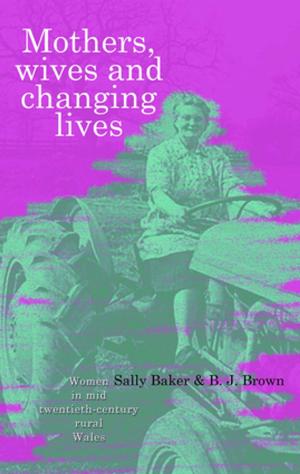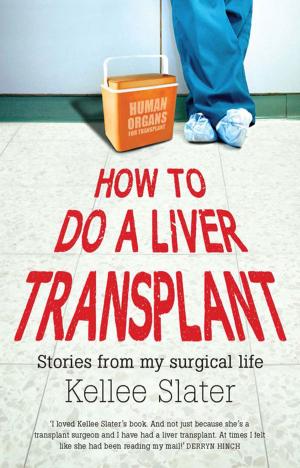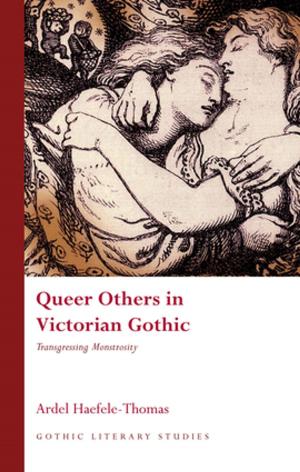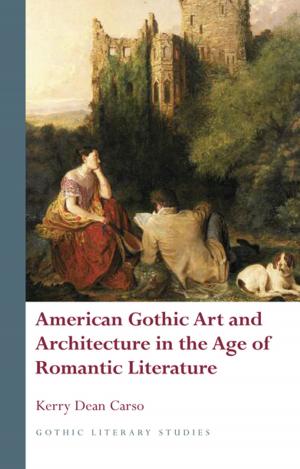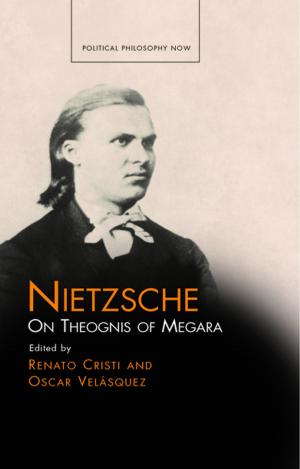Sex and Society in Early Twentieth Century Spain
Hildegart Rodriguez and the World League for Sexual Reform
Nonfiction, History, Spain & Portugal, Health & Well Being, Psychology, Human Sexuality| Author: | Alison Sinclair | ISBN: | 9781783164899 |
| Publisher: | University of Wales Press | Publication: | September 15, 2007 |
| Imprint: | University of Wales Press | Language: | English |
| Author: | Alison Sinclair |
| ISBN: | 9781783164899 |
| Publisher: | University of Wales Press |
| Publication: | September 15, 2007 |
| Imprint: | University of Wales Press |
| Language: | English |
The book traces how Hildegart’s conception, life and early death can be mapped in uncanny manner onto the rise, organization and decline of the Sexual Reform movement in Spain. Conceived deliberately in 1914 as a ‘eugenic’ child (at a date when writing on eugenics was well under way in both England and Spain), Hildegart received her early education from her mother who in her turn had received her own from her father’s library, rich in works of utopian socialism. Subsequently and formally, Hildegart’s education through the 1920s coincided with a period in Spain when writing on eugenics and sex reform became particularly intense. It encompassed both law and medicine (favoured disciplines for those involved in the sex reform movement), and her teens provided a social education within the meetings and publications of the Campaña Sanitaria of Navarro Fernández in the 1920s. Hildegart’s own rise to a position of prominence in the world of eugenics and sex reform undoubtedly relates to her concentrated and impressive publishing activity from 1930 onwards, at a time when writings of others involved in sex reform equally reached heightened activity. The coming of the Second Republic in 1931 further facilitated this publishing activity, and made possible the organization of the Spanish chapter of the WLSR in Spain (the Liga Mundial Para la Reforma Sexual) in March 1932 with Gregorio Marañón as its President, and the youthful Hildegart (age 17) as its Secretary. The Liga gathered together the groupings of hygienists, eugenicists, lawyers and educational reformers who were already part of a wider international scene, and who had been promoting ideas of eugenics and sexual reform in Spain for some time, and particularly through the 1920s. Little more than a year after the Liga was founded Hildegart was killed by her mother, Aurora Rodríguez. It is hard to assert that this shocking event caused the death of the Liga. Nonetheless the movement in Spain seems not to have survived in coherent manner beyond 1933, although individual members continued to be active in various ways. More widely through Europe the WLSR lasted through the 1930s, although its continuity through other organizations until a later date is still insufficiently researched. In the background to the activity leading up to the founding of the Liga there is Hildegart’s correspondence with Havelock Ellis. She wrote to him to seek his advice on setting it up. The correspondence was far more than a simple request for advice, and it lasted until Hildegart’s death. It includes her record of the foundation meeting of the Liga with details of discussion of the ten planks of belief of the WLSR, and reveals the inbuilt power-struggles between professional factions in the organisation. Both the foundation document and the letters require careful interpretation. The foundation document reveals dissension within the Liga at the same time as it shows Hildegart’s energetic efforts to assert her own position within it. The letters themselves tell us much about Spanish sexual politics. But at the same time, and even more strikingly, they are full of Hildegart’s character: her style moves between business-like discussion, an endearing and ingenuous flirtatious manner, distress, and even paranoia. Above all the letters reveal a side of this youthful sexual reformer never documented elsewhere, and their extraordinary discursive nature encapsulates the paradoxes and conflicts in Spain at the time relating to thoughts on sexuality and reform. The correspondence with Ellis is moreover a text with a dramatic subtext, in that it allows us to glimpse in poignant and dramatic detail the personal tensions and anxieties in the life of this young woman who was to be murdered by her mother. The letters also testify to Hildegart’s strong and touching attachment to Ellis as mentor in the setting up of the Liga and, more personally, as a father-figure. The correspondence thus provides a unique window onto a movement and an individual both full of complexity and provide pointers the links between ideas and sexuality in England and the way such ideas were explored in Spain.
The book traces how Hildegart’s conception, life and early death can be mapped in uncanny manner onto the rise, organization and decline of the Sexual Reform movement in Spain. Conceived deliberately in 1914 as a ‘eugenic’ child (at a date when writing on eugenics was well under way in both England and Spain), Hildegart received her early education from her mother who in her turn had received her own from her father’s library, rich in works of utopian socialism. Subsequently and formally, Hildegart’s education through the 1920s coincided with a period in Spain when writing on eugenics and sex reform became particularly intense. It encompassed both law and medicine (favoured disciplines for those involved in the sex reform movement), and her teens provided a social education within the meetings and publications of the Campaña Sanitaria of Navarro Fernández in the 1920s. Hildegart’s own rise to a position of prominence in the world of eugenics and sex reform undoubtedly relates to her concentrated and impressive publishing activity from 1930 onwards, at a time when writings of others involved in sex reform equally reached heightened activity. The coming of the Second Republic in 1931 further facilitated this publishing activity, and made possible the organization of the Spanish chapter of the WLSR in Spain (the Liga Mundial Para la Reforma Sexual) in March 1932 with Gregorio Marañón as its President, and the youthful Hildegart (age 17) as its Secretary. The Liga gathered together the groupings of hygienists, eugenicists, lawyers and educational reformers who were already part of a wider international scene, and who had been promoting ideas of eugenics and sexual reform in Spain for some time, and particularly through the 1920s. Little more than a year after the Liga was founded Hildegart was killed by her mother, Aurora Rodríguez. It is hard to assert that this shocking event caused the death of the Liga. Nonetheless the movement in Spain seems not to have survived in coherent manner beyond 1933, although individual members continued to be active in various ways. More widely through Europe the WLSR lasted through the 1930s, although its continuity through other organizations until a later date is still insufficiently researched. In the background to the activity leading up to the founding of the Liga there is Hildegart’s correspondence with Havelock Ellis. She wrote to him to seek his advice on setting it up. The correspondence was far more than a simple request for advice, and it lasted until Hildegart’s death. It includes her record of the foundation meeting of the Liga with details of discussion of the ten planks of belief of the WLSR, and reveals the inbuilt power-struggles between professional factions in the organisation. Both the foundation document and the letters require careful interpretation. The foundation document reveals dissension within the Liga at the same time as it shows Hildegart’s energetic efforts to assert her own position within it. The letters themselves tell us much about Spanish sexual politics. But at the same time, and even more strikingly, they are full of Hildegart’s character: her style moves between business-like discussion, an endearing and ingenuous flirtatious manner, distress, and even paranoia. Above all the letters reveal a side of this youthful sexual reformer never documented elsewhere, and their extraordinary discursive nature encapsulates the paradoxes and conflicts in Spain at the time relating to thoughts on sexuality and reform. The correspondence with Ellis is moreover a text with a dramatic subtext, in that it allows us to glimpse in poignant and dramatic detail the personal tensions and anxieties in the life of this young woman who was to be murdered by her mother. The letters also testify to Hildegart’s strong and touching attachment to Ellis as mentor in the setting up of the Liga and, more personally, as a father-figure. The correspondence thus provides a unique window onto a movement and an individual both full of complexity and provide pointers the links between ideas and sexuality in England and the way such ideas were explored in Spain.


